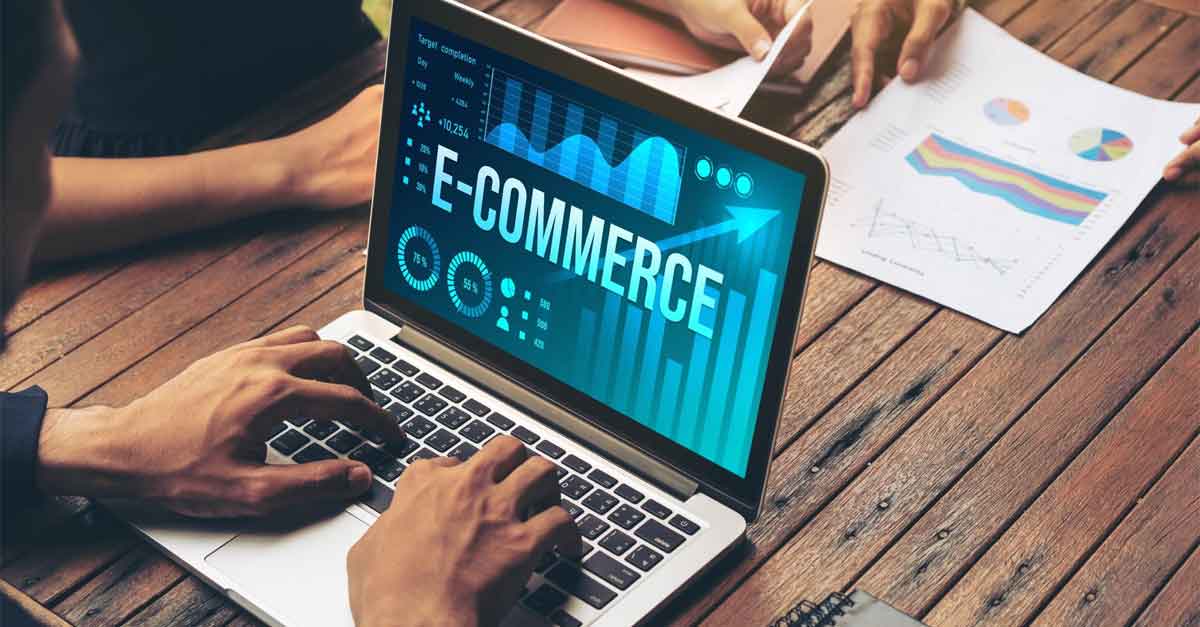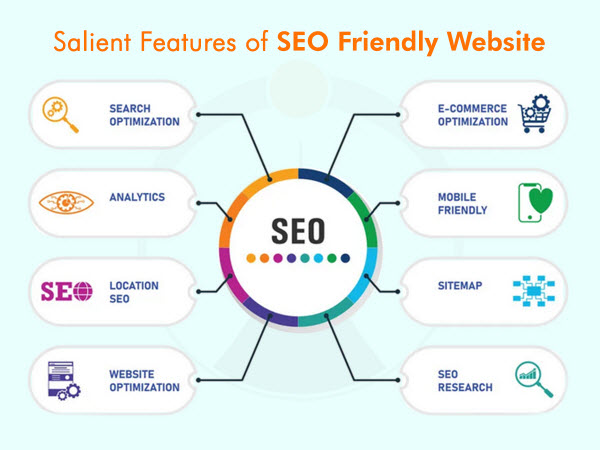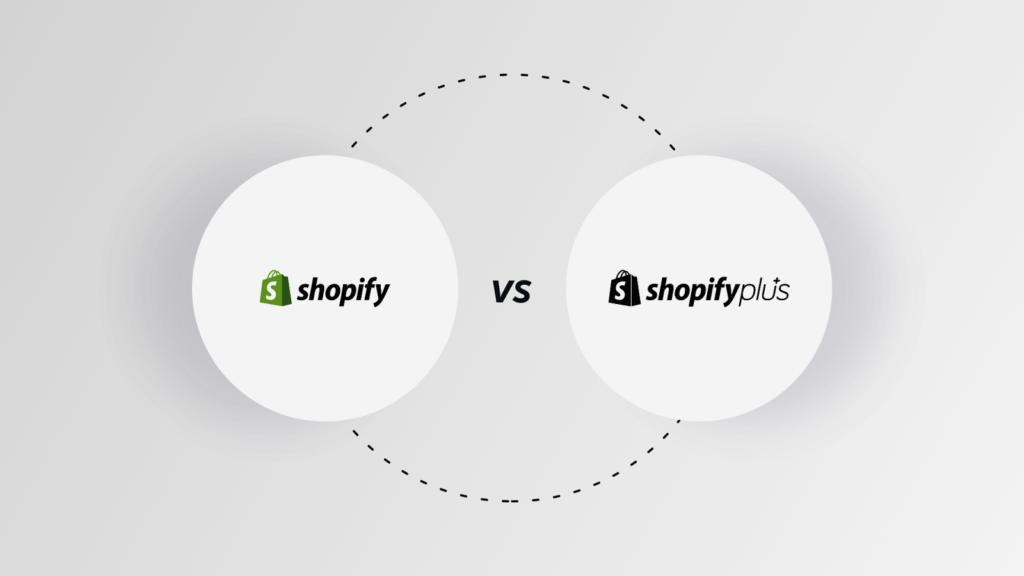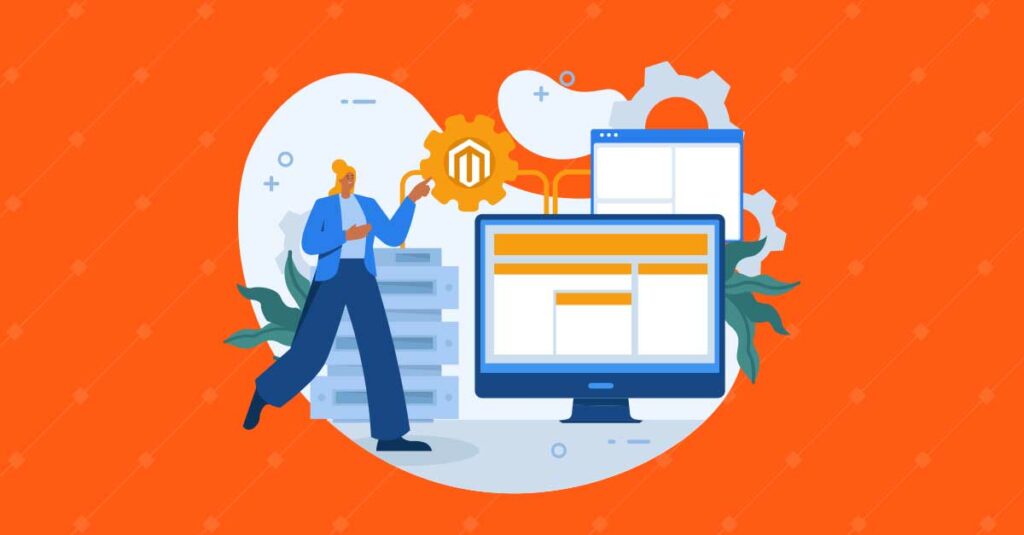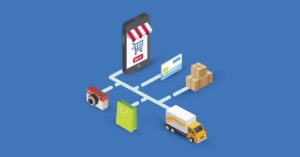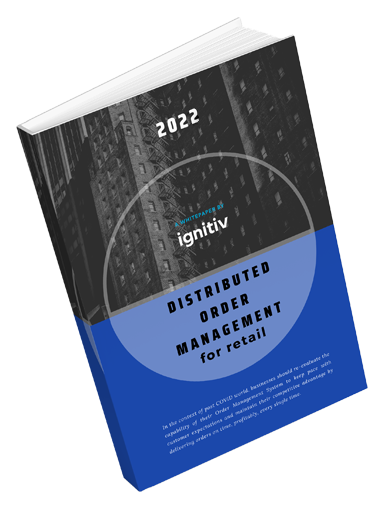How to Choose an Enterprise E-commerce Solution?
SMEs have a myriad of options when choosing an e-commerce solution. However, large-scale businesses with complex requirements may find it overwhelming to find the best suitable Enterprise e-commerce solution. These platforms must scale along with your business and offer advanced functionalities to handle complex workflows such as resource planning, marketing analytics, inventory, and order management, customer data, and so on offer advanced functionalities to handle complex workflows such as resource planning, marketing analytics, inventory, and order management, customer data, and so on.
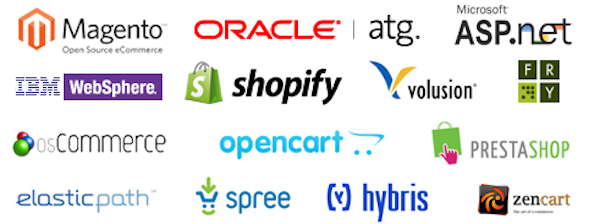
As your business’s sales volume grows, the enterprise e-commerce solution must be able to keep up with multiple stores in several geolocations, multiple currencies, custom order volumes, different languages, high site traffic, multiple product categories, and numerous other complex needs of a large business.
How to choose the best enterprise E-commerce solution? Here we’ve stated essential factors you need to consider before choosing an enterprise eCommerce platform.
What is an Enterprise E-commerce platform?
An Enterprise e-commerce solution is a robust, feature-rich platform with powerful functionalities designed to cater to the unique, complex needs of a large-scale e-commerce business.
Such a platform boasts high efficiency, fast and stable performance, and scalability to handle multiple users, roles, locations, languages, pricing models, third-party integrations, product catalogs, etc. along with support for critical business goals.
Enterprise E-commerce Solutions Types
An enterprise e-commerce platform is designed to boost sales on the front end, whilst facilitating backend operations and integrating core business-critical tools.
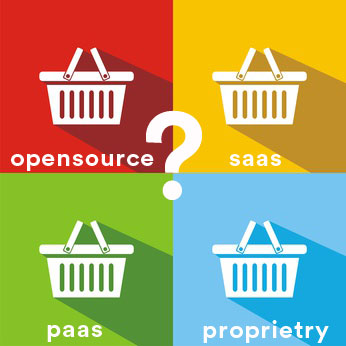
Source: Willows Consulting
Following are the common types of Enterprise Ecommerce platforms you’ll find in the market:
1. SaaS-based
SaaS (Software-as-a-Service) platforms allow businesses to access their data virtually from any device. The SaaS provider is responsible to host, secure, and manage your platform’s application code and databases for an annual or monthly subscription fee.
Due to the subscription-based pricing model, businesses don’t have to invest in hardware and infrastructure and the SaaS vendor will look after the platform’s initial setup, maintenance, upgrades, etc. Moreover, other technical requirements can be outsourced to third parties, thereby reducing TCO.
One of the main drawbacks of a SaaS enterprise ecommerce solution is the lesser control over the code and backend.
2. IaaS
Infrastructure as a Service (IaaS) is where a cloud vendor offers a software and hardware infrastructure bundle including networking resources, storage, and databases. IaaS solutions offer greater control over your infrastructure; however, the initial setup and installation process can be time-consuming.
3. Open-Source
Open-source e-commerce solutions provide full freedom to businesses over software and servers where they can modify the code as per their requirements. Open-source is the best platform for those with coding expertise looking for extensive personalization capabilities to build their store.
The downside is that open-source platforms have high TCO and are resource-intensive in the long run. You may need to purchase and manage third-party extensions and also pay fees for license, PCI compliance, hosting, design, and maintenance.
4. Headless
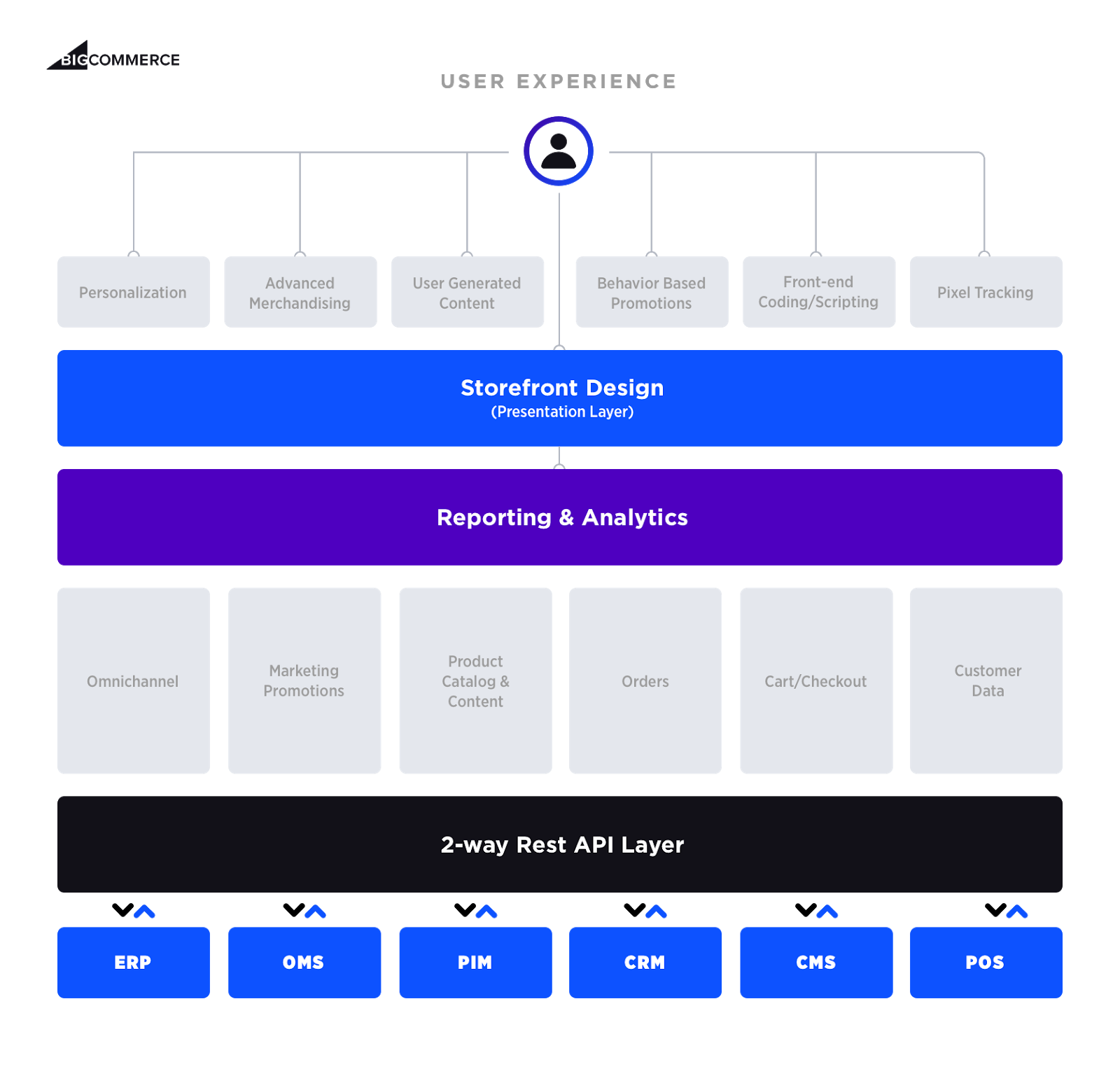
Source: https://www.bigcommerce.com/articles/ecommerce/enterprise-ecommerce-platforms/
A headless platform is SaaS-based and has its front end completely decoupled from the backend services, and both of these communicate via APIs. Headless e-commerce solutions offer the flexibility to customize the “head” viz. the front-end UX layer to help you deliver immersive digital experiences to customers.
Headless platforms provide benefits such as faster site performance, Omni-channel capabilities, and freedom of personalization, to name a few.
5. Composable Commerce
A Composable Architecture is designed by leveraging independent PBCs (Packaged Business Capabilities) that act as building blocks. Each PBC aims to fulfill a specific business requirement, making it easier for businesses to build a custom tech stack, streamline critical workflows, and cater to customer needs better.
The Composable Commerce approach leverages cutting-edge technologies like JAMstack and MACH to seamlessly compose PBCs together and build a highly flexible, agile, and scalable architecture.
How to Choose an Enterprise E-commerce Platform?
Which is the best enterprise e-commerce platform for a large business? Here we have elucidated some of the crucial factors you need to consider when choosing an enterprise e-commerce platform.
1. Evaluate TCO (Total Cost of Ownership)
Calculating the TCO is crucial as it plays a vital role in the success of your enterprise’s e-commerce. Depending upon which type of enterprise e-commerce platform you choose, there are myriads of costs involved such as development costs, subscription fees, processing fees, designing fees, migration costs, maintenance costs, upgrading, licensing fees, hosting fees, third-party extensions, and many others. One must review each cost along with recurring costs and evaluate how it will affect the TCO in the long run before making the final decision.
2. Features and Functionalities
Ask the following questions to yourself before choosing an enterprise ecommerce platform:
- Does the platform support specific integrations such as CRM, payment gateways, etc.?
- Does it support an Omni channel strategy?
- Do you want to host it on your servers?
Make sure to evaluate the answer to these queries to deeply understand the functionality your enterprise requires.
3. Identify the problems
Identifying the pain points is a MUST when you’re already using an enterprise e-commerce platform and looking to re-platform it to a new one. Businesses need to identify the bottlenecks the current platform is creating:
- Do you need a dedicated CRM or a 24*7 customer support team?
- Does your TCO keep getting costlier?
- Is it difficult to integrate important third-party solutions such as
- OMS, ERP, CRM, PIM, etc. with your current platform?
- Is your current platform slow, outdated, inflexible, and difficult to scale with?
- Is the current platform able to handle increased traffic?
- Does your current platform have security loopholes, making it vulnerable to cyber-attacks?
- Does the current platform heavily rely upon the hosting provider for server performance?
If these bottlenecks are increasing your expenses, slowing down business processes, killing your revenue, and contributing to poor customer experiences, it is high time to re-platform to a new enterprise e-commerce solution with better functionalities.
4. Cost Estimation and Budgeting
Even if the TCO is high, a right, well-designed enterprise ecommerce platform will yield good ROI in the long term. For strategic, well-thought implementation, one must plan the budget by involving the key stakeholders in the entire process.
Taking experienced, skilled people on board will reduce turnaround time as these people are likely to make fewer mistakes, thereby saving costs. Weigh the pros and cons of each enterprise e-commerce platform and see which one offers the best value within your budget.
5. Multi-level RBAC
Large enterprises have multiple individuals handling the ecommerce platform such as marketers, product managers, content creators, pricing managers, and many more. The e-commerce platform must support multi-level, role-based access control where the admin can create roles and responsibilities for each team member.
6. Security
Implementing high standards of security and compliance right from the beginning of the DevOps process will ultimately optimize team performance and save hours of time and costs. Doing otherwise may increase the team’s workload, leading to higher costs and longer implementation times.
7. Mobile-first approach
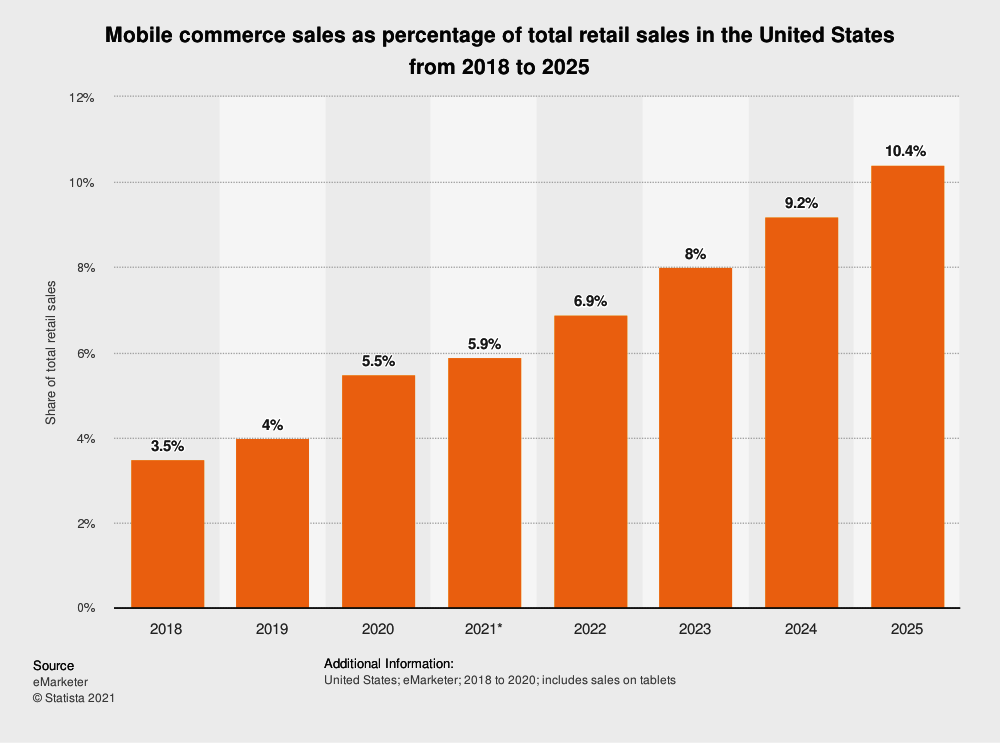
Today, the majority of users prefer ordering from a mobile device such as a smartphone as compared to a desktop. Businesses must strive to make their e-commerce platform mobile-friendly and intuitive, regardless of the screen size.
8. Performance
The enterprise e-commerce platform is expected to be up and running 24*7, even during peak traffic times such as during holidays, sales, offers, or promotional events. If the platform servers slow down due to high traffic, it can lead to slow page loading times and increased bounce rates. The platform must be able to run seamlessly and provide an engaging customer experience at all times, regardless of how you scale up or how heavy the traffic is.
9. Built-in SEO-friendly features
Enterprise e-commerce solutions should offer advanced, built-in SEO (search engine optimization) features to attract more leads on the web organically. Such a platform will prioritize Google algorithm updates regularly to keep your site’s rank high in the SERPs.
Learn more about Best Enterprise eCommerce Platforms for 2023
Some of the most desirable SEO features to seek are XML sitemaps, updating metadata (tags, Meta descriptions), industry-specific keyword research, mobile optimization, captioning images, pagination in product search results, adding canonical tags, etc.
Moreover, look for an e-commerce platform with a powerful web page builder or visual editor that allows even non-technical individuals to make changes to the site to enhance the UX.
10. Integrations
Each business has a unique set of requirements when it comes to integrations. Make sure the enterprise e-commerce platform you choose supports the integrations you want to have in your platform. These could be for customer loyalty programs, payment, shipping, CRM, PIM, ERP systems, email marketing, etc.
11. Merchandising
Not just integrations, but the enterprise e-commerce platform must also support various merchandising techniques such as cross-selling, up-selling, boosting visibility of high-margin products, coupon options, etc. to boost sales.
12. Secure and multiple payment gateway options
Data functionality and multiple, secure payment gateway options are two crucial factors to retain existing customers and attract new ones.
Depending upon the geolocation, you will have to choose the enterprise e-commerce platform that is compatible with multiple payment gateways. Look for a solution that offers PCI DSS level-1 compliance for payments and data security, SSL, and secure data backups. Fraud and DDoS attack protection are additional security options that are desirable to have.
Next important thing is to secure your customers’ data including their financial and personal details. This will not only save your enterprise from potential financial or legal risks but also lead to customer loyalty.
13. Business Model
Most ecommerce platforms are designed to serve a particular business model, B2B, B2C, or D2C. You can strike a balance and look for a solution that caters to all business models.
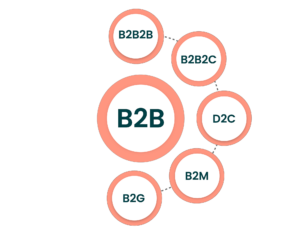
- B2B model requires advanced functionalities such as custom pricing, split shipping, corporate accounts, live chat to aid seamless interaction between buyer and seller, quote requests, multi-level user access, deeper CRM integration, and more.
- B2C and D2C model involves faster transactions with little to no communication between buyer and seller. Hence, these models do not require advanced features and functionality as in the B2B model. Rather, the platform must facilitate faster self-checkouts, easy payments, a user-friendly interface, and stable site performance.
To be sure, you can ask the platform vendor to show you how the e-commerce solution serves different business model types.
14. Headless-Enabled
Choosing an e-commerce platform with a headless-enabled backend will help you seamlessly adopt headless commerce and build a highly flexible, future-proof tech stack. Or, the platform should allow for a flexible or interchangeable front-end UX layer.
15. Hosting
Traffic, order volume, Dev resources, and other critical business parameters will decide what type of hosting you need.
- SaaS hosting is where the businesses will “rent” hosting, so the SaaS vendor will manage your servers, storage, data, runtime, etc.
- Cloud-based hosting is of two types viz. IaaS (Infrastructure as a Service) and PaaS (Platform as a Service). IaaS is a pay-as-you-go hosting type where you only pay for the hosting space you use. On the other hand, PaaS involves a dedicated team to log into a dedicated platform for greater control and granular management of your site.
- Self-hosting is where businesses host their software on-premise with physical servers installed in a data center. Such hosting type offers high flexibility to change any part of the source code and greater control over your site. However, self-hosting also requires you to look after all the maintenance, hardware issues, software bugs, security patches, upgrades, or any other bottleneck that arises.
16. Personalization
The best enterprise e-commerce solution leverages a recommendation engine, AI, and ML algorithms to deliver hyper-personalized experiences to customers in real-time. This is done based on customers’ behavior analysis, shopping history, demographics, psychographics, context, etc.
Benefits of Enterprise Ecommerce Solutions
Enterprise eCommerce solutions are vital for businesses seeking growth and success in the digital landscape. They offer a wide range of features and benefits that can help you to:
- Improve customer satisfaction: Delight your customers with intuitive navigation, fast loading speeds, personalized experience and a user-friendly interface that keeps them coming back for more.
- Integration Capabilities: Enterprise eCommerce solutions integrate with various systems and platforms, including inventory management, CRM, marketing automation, and payment gateways. This integration streamlines operations, reduces manual tasks, and enhances efficiency.
- Operational Efficiency: Automation features, streamlined workflows, and centralized management contribute to operational efficiency. By reducing manual tasks and improving processes, businesses can focus on core activities, reduce costs, and maximize productivity.
- Omnichannel Experience: Enterprise eCommerce solutions enable businesses to provide a seamless shopping experience across multiple channels, such as online stores, mobile apps, social media, and brick-and-mortar locations. This cohesive approach increases customer engagement and drives sales.
- Scalability: Expand your business effortlessly with the ability to handle high traffic, accommodate growing inventories, and adapt to changing market demands.
Frequently Asked Questions (FAQs)
As per Gartner, an enterprise is defined by its annual revenue and number of employees. A medium-sized enterprise has around $50 million to $1 billion annual revenue with 100 to 999 employees.
If you have more than 1000 employees and your business generates more than $1 billion in revenue annually- your enterprise can be defined as a large business that requires an enterprise-grade e-commerce solution.
If your business is growing rapidly, experiencing poor site speed due to peak traffic, and generating high revenue annually- it’s time to switch to an enterprise platform.
Large businesses often choose headless commerce or open-source e-commerce platforms over SaaS-based offerings. These platforms offer greater flexibility, scalability, and control over personalization as per business needs.
Enterprise e-commerce platforms unify inventory management, social media integrations, analytics, payment, shipping, CRM, customer data management, order management, marketing automation, etc.- to create a single source of truth. This approach streamlines workflows, keeps inventory accurate, resolves customer tickets faster, improves marketing efforts, and provides a competitive edge in the market.
Following are the key capabilities best enterprise e-commerce solutions provide:
- Scalability as the business expands
- Support for separate Dev, production instances, QA, UAT, and other software development practices
- Seamless integrations with ERPs- Oracle, JD Edwards, SAP ECC, and more.
- Integrated CMS
- B2B and B2C capabilities
- Fully functional PIM capabilities
- Support for multi-level RBAC
- Search and Merchandising configurations
How does Ignitiv help you choose the best enterprise e-commerce platform?
It all comes down to your unique business requirements. At Ignitiv, we help businesses implement e-commerce solutions with our years of expertise in curating some of the best enterprise e-commerce platforms in the market.
By understanding your business-critical needs and conducting gap analysis, we help you transform digitally and fully explore the potential of enterprise e-commerce features offered by our leading e-commerce partners.
